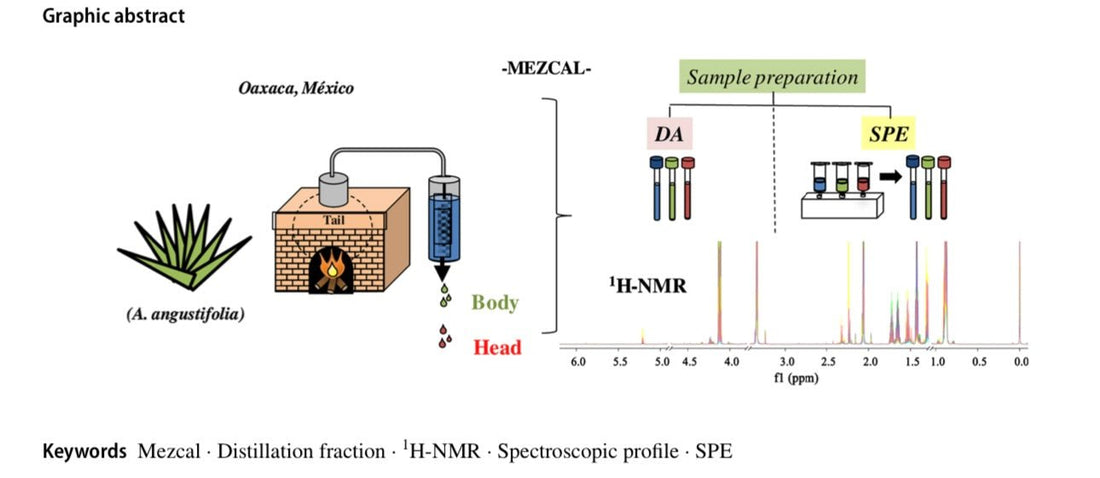
Does mezcal give you a hangover?
Does mezcal give you a hangover? And are all the latest influencer claims about Low-GI, lower Acetylhyde and lower blood sugar levels true?
So today much of the online chatter is that tequila and mezcal are the best drinks if you are on a diet? Let’s look at this a little closer…
Firstly, we can forget any tequilas that have additives, preservatives or sweeteners because the sweeteners would obviously hit your blood sugar levels.
Bandida contains zero sugars and zero carbohydrates. During the fermentation process the sugars from the agave plant are converted to alcohol. Unlike many other spirits such as Rum, or even beer and wine; there are residual sugars in the end product. In beer for example not all the sugars in the malt are fully fermented by the yeast.
Agave contains fructans, which are prebiotics (not probiotics). Prebiotics are compounds that promote the growth of beneficial bacteria in the gut.
Agave is a source of polysaccharides, which are complex carbohydrates that are broken down slowly and generally have a lower impact on blood sugar compared to simple sugars.
Whereas beer for example, often contains polysaccharides due to the fermentation of grains post-production, which can leave behind some unfermented complex carbohydrates.
Mezcal generally has a very low glycemic index (GI) because it does not contain any significant sugars or carbs after distillation. In fact Bandidas GI is close to 0.
Please remember to always drink responsibly. The better quality the alcohol, the less use of additives and sweeteners, the better quality of tools and method used also should be taken into consideration.
Mezcal’s purity, natural ingredients, and artisanal production methods contribute to fewer impurities, which some believe could lead to fewer hangover symptoms.
So here are 4 influencers, let’s see what they have been saying;
Dave Asprey; states mezcal is healthier than tequila because tequila contains mycotoxins - https://www.instagram.com/p/C4BFajGsd2R/?igsh=MXJndjFtZTBsdDdtdQ=
Tequila Jay; big tequila trying to shut down additive free movements. Additive free tequila sales on the rise - https://www.instagram.com/reel/C5Rtmp_PvgR/?igsh=bzc4ZnJlNWZ2ZGM4
Tequila Wanderer; states agavins help reduce cholesterol and lowers blood sugar - https://www.instagram.com/reel/C0KMYgoLfR7
Tai Lopez -https://www.instagram.com/reel/C9MG5sNOfGt/?igsh=MWt0MnY4c3BoaHM1dA==
Now, I cannot condone or confirm this information. At all. Some of this is not fully backed by science literature or peer reviewed publications. There are elements of truth and I can see why this information is so widely publicised but they key for me, is that during the fermentation and distillation process the chemical composition changes of some of the elements.
Here are some scientifically backed truths;
Agavins are natural sugars found in agave plants and are a type of fructan, which is a form of dietary fiber. Unlike regular sugars, agavins are not digestible by humans, meaning they do not raise blood glucose or insulin levels. This has led to some interest in agavins as a potential dietary supplement for managing blood sugar levels and supporting weight loss, although much of the agavins are removed during fermentation and distillation.
Congeners (substances produced during fermentation and aging) are found far less in mezcal compared to other spirits. This is because premium mezcal is often made using traditional, artisanal methods that involve zero additives and fewer impurities. Lower levels of congeners can result in fewer hangover symptoms for some people.
Low GI and Keto-friendly are also claimed, and this is in fact correct. Artesanal mezcal is both Low GI as there are very little carbohydrates therefore Bandida does not heavily impacting blood sugar levels. Also mezcal can be consumed without affecting ketosis if consumed responsibly.
There are many people online claiming that tequila does not affect heart rate or blood pressure. This is not accurate, all alcohol can affect blood pressure, the key is how much of it you drink and this will impact everyone differently.
I think influencers are eluding to the fact that low GI and fructans mean that mezcal would cause less impacts on health when compared to other spirits, beers or wines. And in some cases they are referring to the raw agave plant.
There are also many influencers stating that mezcal has lower Acetaldehyde Production: Agave spirits generate less acetaldehyde, a toxic byproduct of alcohol metabolism that contributes to hangovers and other negative health effects. Now this has not been widely understood so I decided to confer with the latest peer reviewed publications. Online searches such as Google and ChatGPT conclude that this is not true, so let’s have a look at the data.
For Acetaldehyde I took to the latest scientific publications;
1H‐NMR profile of mezcal and its distillation fractions using two sample preparation methods: direct analysis and solid‐phase extraction
Alejandra del C. Pineda‐Amaya1 · Iran Ocaña‐Rios2 · Martha E. García‐Aguilera2 · Hipócrates Nolasco‐Cancino3 · Beatriz Quiroz‐García2 · Nuria Esturau‐Escofet2 · Francisco Ruiz‐Terán1
The study found that acetaldehyde, a compound associated with hangovers, is primarily concentrated in the "head" fraction of distillation. The final mezcal product generally contains lower levels of acetaldehyde compared to other spirits, depending on the distillation process (because we leave out the head). This suggests that mezcal could potentially have lower acetaldehyde levels, which might contribute to fewer hangover symptoms compared to other spirits if distilled carefully.
https://doi.org/10.1007/s11696-021-01660-5
ORIGINAL PAPER
Reduced Inflammation: Because agave-based drinks produce less acetaldehyde, they lead to lower levels of inflammation, helping people avoid some of the common adverse effects associated with alcohol consumption.
Reading between the lines, running our own scientific experiments and referring to other peer reviewed data, it appears the hard work put in to creating our product does result in one of the purest forms of alcohol you can imbibe. Always drink responsibly, if you drink too much, any potential positive benefits will be negated.



